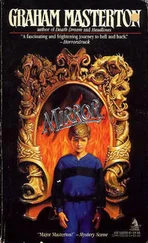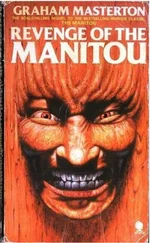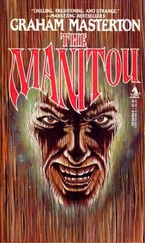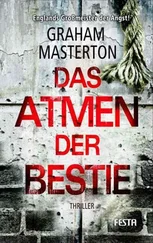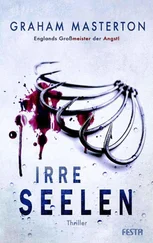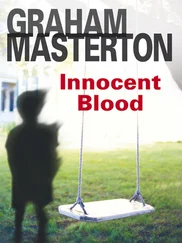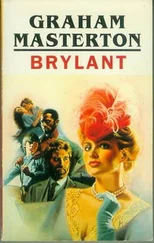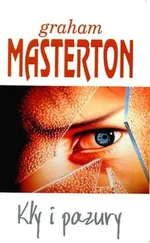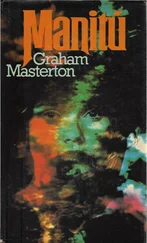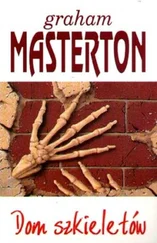They rented a car from the Hertz desk downstairs in the hotel lobby. They were given a red Nissan Primera which was cramped compared with Josh’s old 1971 Mustang back home, but at least it was automatic. He couldn’t have managed a stick shift in London.
They drove out first to the Great West Road. The sky was wooly gray and the wind was getting up. As Ella had told them, it was nothing but a long string of factories – Rank Audio, Hoover, and Gillette – mile after mile. Except for its distinctive clock tower, the Gillette building looked remarkably like the Wheatstone Electrics factory: white-painted, with neat rows of trees, the model of 1930s consumerism. But even though they drove up and down the Great West Road twice, they found no sign of Wheatstone Electrics itself.
It began to rain, and as they drove back toward the center of London, Josh began to feel deeply dejected. Even if he never found out who had murdered Julia, he needed to know where she had been for so long, and how she had spent the last ten months of her life. Nancy put a consoling hand on his knee. “She must have been someplace, Josh. Nobody just vanishes.”
They reached Carey Street, around the back of the Law Courts, and by now it was raining heavily. They had a drink in a narrow old pub called the Seven Bells, elbow to elbow with noisily braying lawyers. Then they walked down to the end of the street, to Star Yard. It was nothing at all – a narrow flagstoned thoroughfare with high soot-stained buildings on either side, and a black-painted Victorian urinal. They walked up to the end but there was nothing to see, only brick walls and dirt-streaked windows, with curled-up law books on the windowsills inside.
At the corner of the yard there was a narrow niche between one wall and another, but it was clogged up with rubbish and somebody had sicked up a curry in it, so Josh didn’t venture any further.
He looked around, with rain dripping from the tip of his nose. “This Wheatstone guy arranged to meet Julia here, at eight fifteen in the morning. But why?”
With Nancy navigating, they crossed Battersea Bridge and drove to Lavender Hill. Josh had imagined a hill thickly grown with fragrant purple lavender, but instead he found it was just another noisy traffic-blighted road junction with used-car dealers and second-hand furniture shops and kebab restaurants.
He managed to park in a back street, and they walked back down to the main road and went into D.R. Patel newsagents. It was a tiny shop, crammed with shelves of dog-eared birthday cards and fragrant with Indian spices and children’s candies. The bearded newsagent was balanced on a chair, rearranging the adults-only magazines on his top shelf. His wife stood beaming solicitously behind the counter.
“We’re looking for Kaiser Gardens,” said Josh.
The wife said nothing but shook her head.
“Mrs Marguerite Marmion, of 53b Kaiser Gardens?”
Again she shook her head.
At that moment an elderly man came shuffling in, wearing a damp cloth cap and a pair of rain-spotted glasses that magnified his eyes like oysters. “Gissa packet of them froat sweets, love,” he said, digging into his pocket for some loose change.
“These people are looking for Kaiser Gardens,” said the newsagent’s wife.
The man blinked at them, and sniffed. “Kaiser Gardens? Kaiser, like in Kaiser Bill?”
“I guess so, yes.”
“You must be joking, mate. You’re sure you don’t want Hitler Avenue? Or Goring Grove?”
“I’m sorry, I don’t quite—”
“Somebody’s been pulling your leg, mate. You won’t find nowhere in London named after Kaiser Bill. You’re a Yank, incher? How many streets have you got in Yankee-land named after old what’s-his-face, Hirohito?”
Josh looked at Nancy and raised his eyebrows. “Guess we’re on a wild goose chase. I’m sorry.”
“Sorry,” said the newsagent’s wife.
“Very sorry,” said the newsagent.
They arrived back at the hotel and it was still raining hard. There was a message from DS Paul saying that all of the seventy-eight people who had responded to last night’s television news had been eliminated. Apart from the Crimewatch appeal, a new picture of Julia would appear in tomorrow’s morning papers.
Josh called DS Paul but she was out of the office. All the same, he was able to talk to her assistant, Detective Constable Widdows, who sounded as if he were about fifteen years old.
“Yes, that’s right, Mr Winward. None of them checked out. Well, that always happens with a murder inquiry – people like to be helpful even if they don’t have any useful information.”
“So, no leads at all?”
“Nothing that’s panned out yet. We’ve had the full postmortem report, but I’m afraid that doesn’t tell us anything that we didn’t know already. Cause of death was asphyxiation with a rope. Pure hemp rope, apparently, with no nylon or other synthetic ingredient, which is quite unusual these days. Obviously we’re doing the rounds of chandlers and other rope suppliers. Immediately after death the body was eviscerated and then taken to the river and thrown in. There’s very little fingerprint bruising, which suggests that she wasn’t roughly handled before death and that her body was probably carried in a sheet or a duvet or something similar.”
“She wasn’t—”
“Sexually assaulted? No sir, she wasn’t. Whatever the motive was, it wasn’t that.”
For some reason, Josh thought thank God. But of course it didn’t make Julia any less dead.
“You still have no idea where she’s been since she quit that Saudi job?”
“None at all, sir. We’ve checked with the Inland Revenue and the Department of Social Services and she wasn’t registered with either of them. We’ve checked with every employment agency in West London and none of them had your sister on their books, or even a girl who might have been your sister under a false name. We’ve checked with hostels, hotels, clinics and hospitals. We’ve checked with airlines, shipping lines, coach companies and all rail services. Your sister had an American Express Card and a Mastercard, but she made no purchases with either card after six thirty-eight p.m. on the evening of May tenth last year, when she used her American Express Card at Thresher’s off-license in Earl’s Court Road to buy two bottles of Lanson champagne, a packet of dry-roasted peanuts and a Topic. That’s a chocolate bar with nuts in.”
Josh pinched the bridge of his nose. “Thanks,” he said. “I guess you’re doing just about everything that’s humanly possible.”
“It’s only day three, sir. And we’ve still got Crimewatch.”
Josh and Nancy went to the Brompton Library. It was a huge, gloomy red-brick building filled with the sour smell of old books, and it was suffocatingly silent, except for the pattering of rain on the windows. They looked up Wheatstone Electrics in the register of companies and found no mention of it. Upstairs, they found an enormous book on the history of London’s development in the consumer boom of the 1930s with dozens of illustrations of all the spectacular new art-deco factories that were built along the Great West Road – Smith’s Crisps and Hudson Cars and Henly’s Garage – but no reference whatsoever to Wheatstone’s. Josh couldn’t understand it. Wheatstone’s was such a distinctive building that it seemed impossible that a definitive study could have omitted it.
He slammed the book shut and a thin man on the other side of the table gave him a look that could have stunned a tortoise. Josh leaned over to Nancy and whispered, “Ella and her friends were right. It was a practical joke. Kind of a weird joke, I have to admit, but a joke all the same. There never was a Wheatstone Electrics, and there never was a Kaiser Gardens, nor a Marguerite Marmion. Julia made up the whole damn thing, and left the letter under her bed just to make absolutely sure that Ella found it.”
Читать дальше

